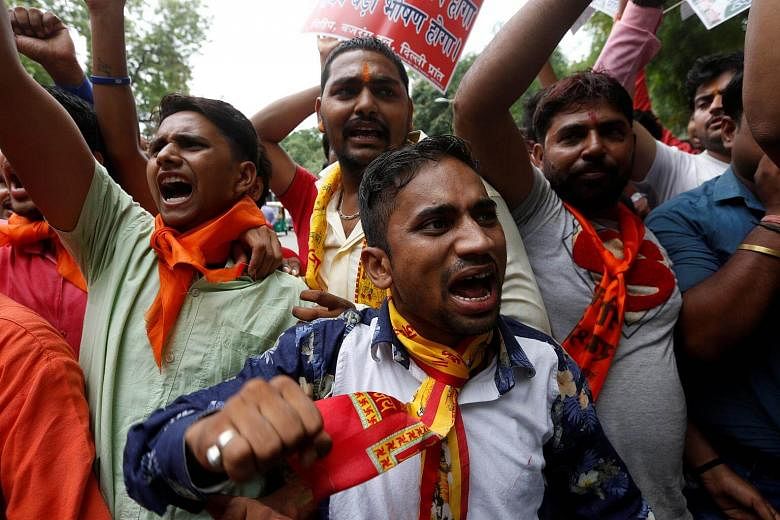NEW DELHI (THE STATESMAN/ASIA NEWS NETWORK) - Overdue, but still very welcome, is the move by an apex regulatory body of Hindu seers - the Akhil Bharatiya Akhara Parishad (ABAP) - to crackdown on fake "God-Men" by publishing a list of 14 popular figures whom it describes as "rootless cult leaders", and appealing to the people not to be misled by charlatans.
The Parishad has called for corrective/preventive legislation to be enacted. Coming as it does in the aftermath of the uncovering of unsavoury conduct of the Dera Sucha Sauda and its now-jailed supremo Gurmeet Ram Rahim Singh, the listing of 13 other cults ought to help curb the menace posed by such cult figures.
The authority or influence of the Parishad will be put to test, the somewhat loose organisational structure of Hinduism has been overly-exploited over the years.
The Parishad's president, Swami Narendra Giri, has made bold to declare, "we appeal to even the common people to beware suchc harlatans who belong to no tradition, and by their questionable acts bring disrepute to sadhus and sanyasis."
The Parishad is a council of 'akharas' (monastic orders) drawing their spiritual lineage from the 8th Century seer, Adi Shankara.
The Parishad head told the media in Allahabad "we are going to send copies of this list to the Centre, state governments, Opposition parties with the demand that a strong legislation be brought to check the activities of these self-styled cult leaders".
Another list of 28 "fakes" would be released after Diwali, the ABAP announced.
The remedial action is not limited to the blacklist. The ABAP, which has links with the Vishwa Hindu Parishad, has decided to set up a mechanism by which the title of sant will be awarded after evaluating and monitoring an individual's life-style.
No cash or allied assets will be permitted to be held by individuals, all should be held by a Trust and utlised for public welfare.
The public would be encouraged to "cross-check" god-men before becoming their disciples. Spreading the message to be wary of charlatans will, however, require concerted action, for the finances of temples could also be impacted.
Relations between "church and state" have universally been complex, and would be even more tricky in the absence of a formal structure governing Hinduism.
That some of these cults have substantial political clout has just been reaffirmed by events in Haryana, and their wealth is legendary.
Translating the ABAP plan into action will not be easy, indeed even the status of that body may be queried.
Yet the National Democratic Alliance (NDA) government, which takes pride in its links with Hindu organisations cannot back off from preventing the common folk from being exploited.
It will be required to display the same moral muscle it flexed when influencing the apex court to junk the distasteful practice of triple talaq.
The Statesman is a member of The Straits Times media partner Asia News Network, an alliance of 23 news media entities.

